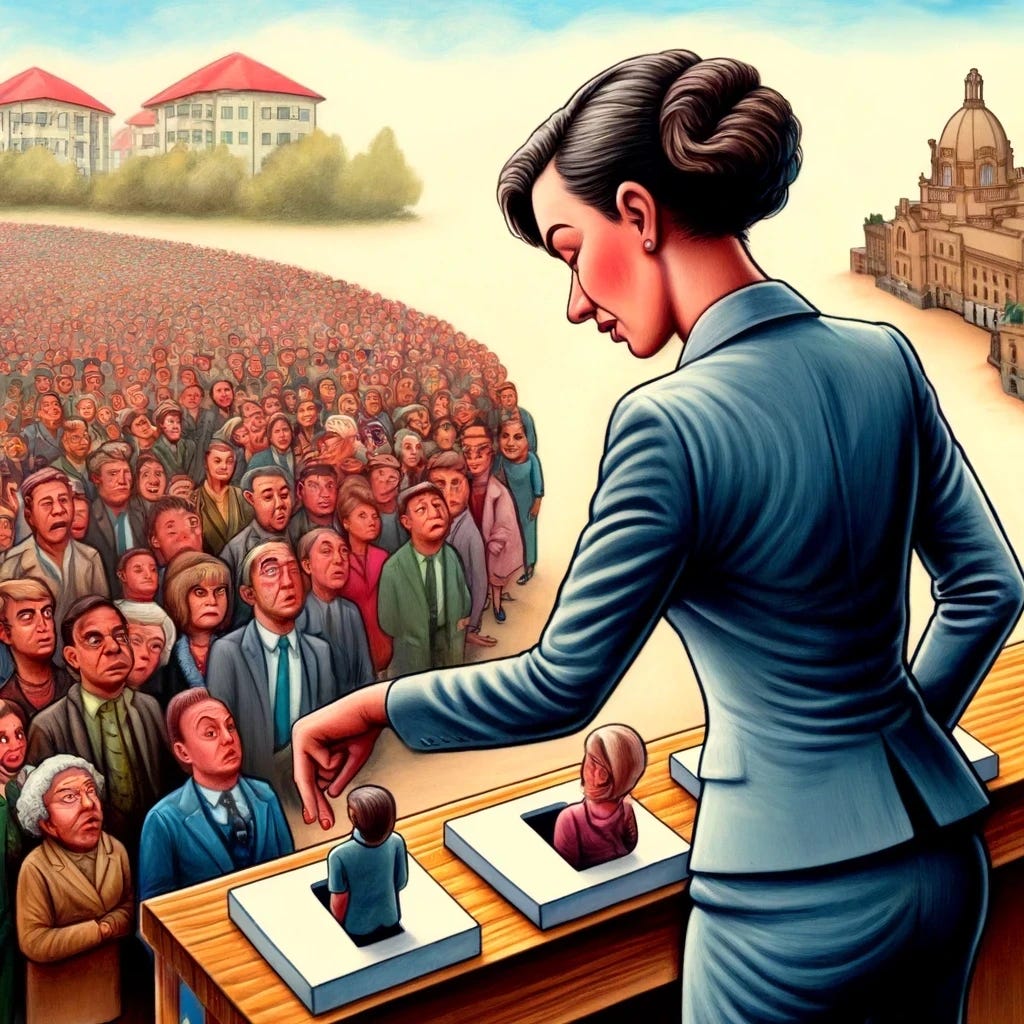You could hear the laughter from across the pond yesterday. UK prime minister Boris Johnson was turned away from the voting station for failing to provide proper identification. The irony: it was his government that brought in the legislation that barred him from voting that day.
It was a funny episode with a poignant reminder: voter identification laws are unnecessary. They do far more harm than good.
Bill 20 and Voter Suppression
Drawn from the far-right populist playbook, voter ID laws like those included in Alberta’s Bill 20 are designed with a primary objective in mind: limiting the types of people allowed to cast ballots so the government can win elections.
By removing the ability of Albertans to vouch for the identity of their fellow voters, and requiring all voters to brandish approved forms of ID, the UCP is doing away with decades of tradition and setting a worrisome precedent.
Ostensibly, governments introduce these laws to protect the integrity of the election process. It seems reasonable: you should have to prove you are eligible before you can vote. It’s so reasonable, in fact, that we already have those safeguards in place.
The addition of an ID requirement adds an unnecessary barrier to the process: one the government knows not everyone can clear easily.
The argument in favour of voter ID is built on conspiracy, not evidence. Cases of voter fraud are exceptionally rare. As we’ve seen in the Boris Johnson case, they prevent more people from voting than they prevent from cheating.
But it’s not the raw numbers that matter.
Voter ID laws are designed to prevent specific categories of people from participating in elections. This amounts to government politicians choosing their own voters, rather than the other way around.
Voter ID laws reduce turnout; that's their primary purpose: to limit the number of votes cast. But it's how they reshape the electorate that should be of greatest concern.
Lower turnout matters to the extent that the voting and non-voting populations are distinct. If the people casting ballots look, think, and feel just like the people who don't, the impact of fewer votes on representation isn't as worrying.
Voter ID laws are intended to disrupt this balance, however. By dissuading certain groups of people from voting, they are limiting those folks' influence on the political system. Politicians will pay less attention to them and their concerns both during and between election campaigns if they know they cannot vote.
The marginalized become more marginalized. And the government consolidates power.
Who is being excluded?
Research on voter ID laws is quite comprehensive on this point. These laws have a disproportionate impact on the following groups of would-be voters by either barring them from casting a ballot altogether or discouraging them from even trying in the first place:
Indigenous people
members of visible minority groups
people experiencing houselessness
low-income voters
the elderly
people with disabilities
people in rural areas
out-of-province workers and students
People in these groups are less likely to possess the required forms of identification (e.g., due to cost, knowledge, access, lack of birth certificate, or distrust of government agencies). Through Bill 20, the UCP government has made it clear: they want fewer of them to participate in elections.
Think for a moment: do you know anyone without government-issued identification? How much power or influence do you imagine someone without government ID has on our political system? Do you want them to have even less?
Of secondary concern, voter ID laws are also costly to implement, creating more red tape for election officials and voters. In US states where the laws have been introduced, the government and citizens have been drawn into lengthy and expensive court cases.
It’s also unclear who will pay for and design the necessary education campaigns to roll this out effectively. Again, in states where these laws have rolled out, governments have left already-strapped advocacy groups to do this sort of mobilization.
Vouching removes all of these concerns. It’s a system that’s worked for decades in Canada, with no evidence to the contrary.
What can we do about it?
Yesterday, the Government of Alberta repeated its interest in engaging Albertans on Bill 20. The minister kept his focus narrow, however, intending to engage only municipalities and only on the topics of removing local elected officials and overturning local bylaws.
Given the scope of the law, Albertans and municipal leaders should insist the government engage more broadly on Bill 20. These consultations should focus on all elements of the bill, including voter ID. And they should involve experts, civil society groups representing the folks most directly impacted, and everyday Albertans.
In the meantime, municipal leaders should raise voter ID concerns in their engagements with the province.
If the the government does listen, they’ll hear loud and clear: Albertans don’t want politicians to chose their voters. They want voters to choose their politicians.





Thank you for this. The UCP is clearly drawing from the Trump cult playbook; voter suppression, fixing imaginary problems like electronic vote tabulators, legislation that enables arbitrary abuse of power and the rule of law, smearing opponents as anti-Alberta and radical (although calling Nenshi a communist is on brand with Klein calling Kevin Taft a communist) and most importantly, using government to implement the agenda of a far right minority. It's going to be a long, and ugly, three years.
I will try to help educate my contacts that may be vulnerable.